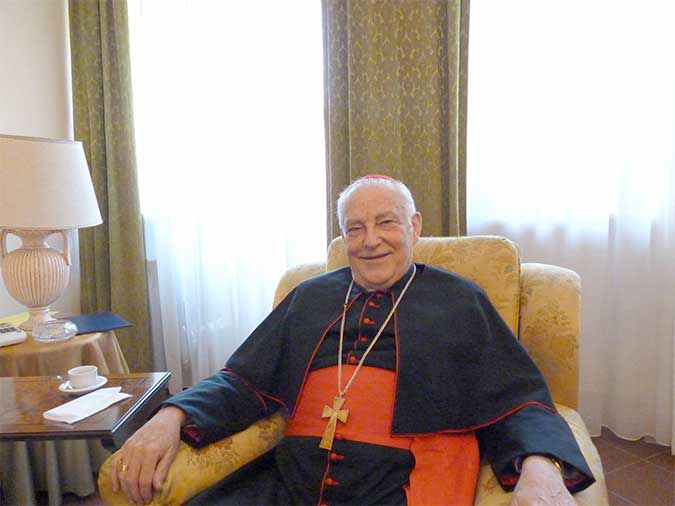A recently released Vatican document is calling for a fresh commitment to Catholic identity within what it calls an increasingly secularized educational system.
“The Catholic identity of the school is fundamental,” Cardinal Zenon Grocholewski, prefect of the Congregation for Catholic Education, said at a Dec. 19 press conference.
Noting the many challenges facing Catholic schools, the cardinal added, “today one of the greatest problems is when large organizations want to impose gender ideology.”
“Today, due to the advanced process of secularization, Catholic schools find themselves in a missionary situation, even in countries with an ancient Christian tradition,” reads the congregation's “Educating to Intercultural Dialogue in Catholic Schools.”
“Catholic schools' primary responsibility is one of witness,” the document continues. “In the various situations created by different cultures, the Christian presence must be shown and made clear, that is, it must be visible, tangible and conscious.
“Catholic schools have in Jesus Christ the basis of their anthropological and pedagogical paradigm; they must practice the 'grammar of dialogue,' not as a technical expedient, but as a profound way of relating to others. Catholic schools must reflect on their own identity, because that which they can give is primarily that which they are.”
Cardinal Grocholewski reaffirmed this vision at the press briefing. “Catholic schools are best not just because they give knowledge and competence, but because they show interest in the person for the good,” he said.
According to data from the Annual Church Statistics given at the press conference, the number of students in Catholic schools has risen from nearly 55 million in 2008 to around 58 million in 2011.
The document notes, however, that “Catholic schools are seeing an ever growing presence of students with different nationalities and religious beliefs. In many countries of the world, most students profess a non-Catholic religion and the theme of interreligious encounter is now unavoidable.”
Archbishop Angelo Vincenzo Zani, Secretary for the Congregation for Catholic Education, said that “the differences between cultures are not obstacles, but opportunities.”
The goal of Catholic schools should be to find balance between the two cultural extremes found in the world today, advises the document.
On the one hand, “one needs the ability to witness and dialogue, without falling into the trap of that facile relativism which holds that all religions are the same and are merely manifestations of an Absolute that no one can truly know.”
On the other, “what is important is to give answers to the many young people 'without a religious home,' the result of an ever more secularized society.”
“The final aim of education in intercultural dialogue,” Cardinal Grocholewski concluded, “is the construction of a civilization based on love. The civilization of love, for Christians, does not mean a vague solidarity, but rather an expression of Christ's charity.
“This is the service through which Catholic schools, which always strive to join their work of education with the explicit proclamation of the Gospel, are a most valuable resource for the evangelization of culture, even in those countries and cities where hostile situations challenge us to greater creativity in our search for suitable methods.”
---Catholic News Agency

